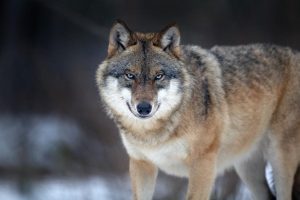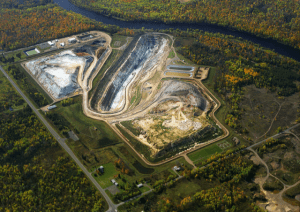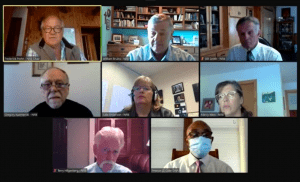WGF Work Product (public comments, testimony, press)
WGF Featured in Interview about Proposed Sandhill Crane Hunting Bill
Wisconsin’s Green Fire’s Executive Director Fred Clark was recently interviewed by WUWM about WGF’s testimony on a proposed sandhill crane hunting bill in Wisconsin, presented to the Senate Committee on Sporting Heritage, Small Business, and Rural Issues last week. Fred emphasized that WGF did not take a formal stance on the …
Read More >WGF Provides Testimony on Sandhill Crane Hunting Bill, Senate Bill 620
Wisconsin’s Green Fire will provide testimony at a public hearing on Tuesday, October 19th about Senate Bill 620, a recent bill regarding hunting sandhill cranes in Wisconsin. WGF members Dr. Robert Rolley, Dr. Stanley Temple, and Tom Hauge contributed to this testimony that encourages consideration of the …
Read More >Wisconsin’s Green Fire Releases Statement on August 11, 2021 Wisconsin Natural Resources Board Action on Fall Wolf Hunt Quota
On August 11, 2021, the Wisconsin Natural Resources Board (NRB) voted 5-2 to establish a quota of 300 wolves for the fall 2021 wolf hunt.
The removal of 300 wolves again this fall, on top of the removal of at least 218 wolves during the three-day February wolf hunt, could result in a population of as …
Read More >Wisconsin’s Green Fire and Partners Call for Removal of Natural Resources Board Chair
July 23, 2021
WGF and partners released a statement this week calling on Attorney General Josh Kaul to remove Frederick Prehn from the NRB. View the statement here:
WGF and Partners Call for Removal of NRB Chair
Contact: Wisconsin’s Green Fire Executive Director, Fred Clark
Read More >Wisconsin’s Green Fire Statement on Natural Resources Board Service of Dr. Frederick Prehn
June 23rd, 2021
Wisconsin’s Green Fire Statement on Natural Resources Board Service of Dr. Frederick Prehn
Since his appointment in 2015 Dr. Prehn has served the Wisconsin Natural Resources Board with commitment and distinction, and he has provided strong leadership for the Department of Natural Resources and its many stakeholders.
However, as documented in his original …
Read More >Wisconsin’s Green Fire Provides Written Testimony on Wolf Management
On Wednesday, January 13th, 2021 at 10 AM there was an in-person joint informational hearing with the Senate Committee on Sporting Heritage, Small Business and Rural Issues, and Assembly Committee on Sporting Heritage. This hearing was convened to discuss the process of reinstating the wolf harvesting season in 2021. Wisconsin’s Green Fire has been following this issue closely and has provided written testimony to the committees that reflect our recommendations recently published Opportunities Now paper on wolves.
Read More >Wolf Delisting and Recovery
On October 29, 2020, the U.S. Fish and Wildlife Service (USFWS) announced the delisting of gray wolves from the Federal List of Endangered and Threatened Species, which will mark the beginning of the next chapter of our long relationship with wolves in the Great Lakes region. As wolves have reached healthy …
Read More >Wisconsin’s Green Fire Calls for Increased Scrutiny of Metallic Mining Rules
Wisconsin’s Green Fire, along with 9 other environmental groups, submitted comments to the Wisconsin Department of Natural Resources (WDNR), urging the Department to modify draft rules related to sulfide metallic mining. A 2017 bill passed by the state legislature made wholesale changes to mining laws and prompted the current agency rulemaking process. While the 2017 …
Read More >WGF Supports Knowles-Nelson Stewardship Fund Reauthorization
In August, representatives from Wisconsin’s Green Fire were able to speak with Governor Evers and Lt. Governer Barns about the Knowles-Nelson Stewardship Fund and provide a letter to address identify additional program needs and offer up suggestions on framing the case for continued funding of this important conservation program.
Read More >WGF Testimony to Natural Resources Board – Special July 30th Meeting on Deer Quotas and Hunting Seasons
“The northern forest CDACs together with department staff examined the deer herd population data and
determined that their harvest recommendations were biologically sound and consistent
with the established population objectives. We support their conclusions.”










